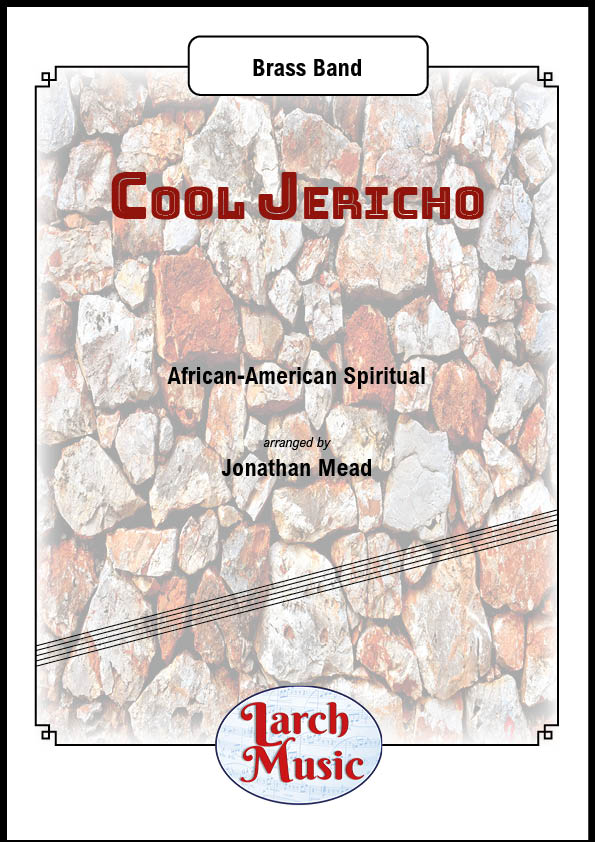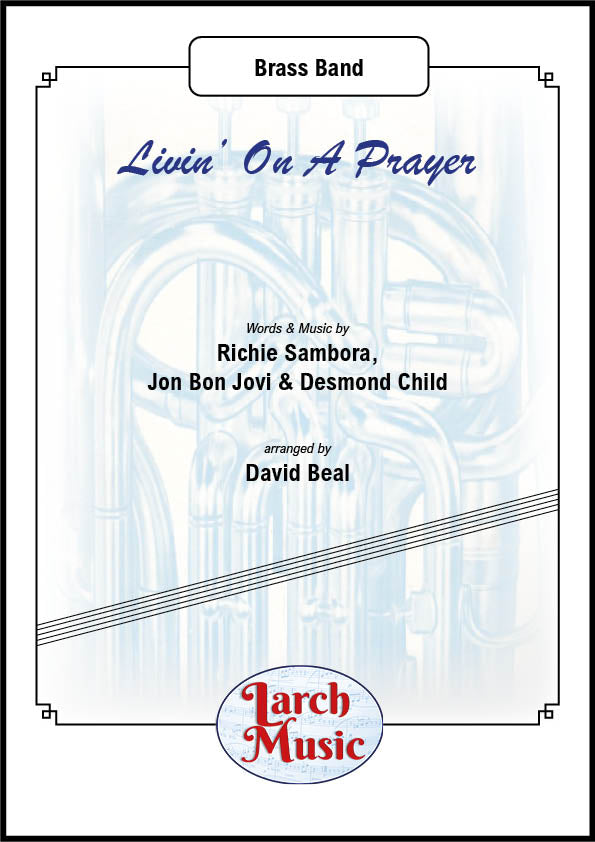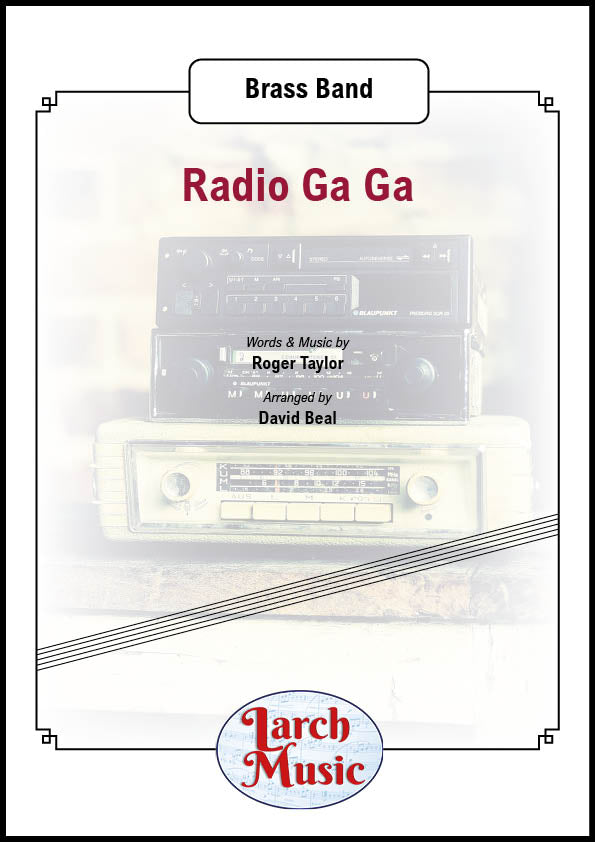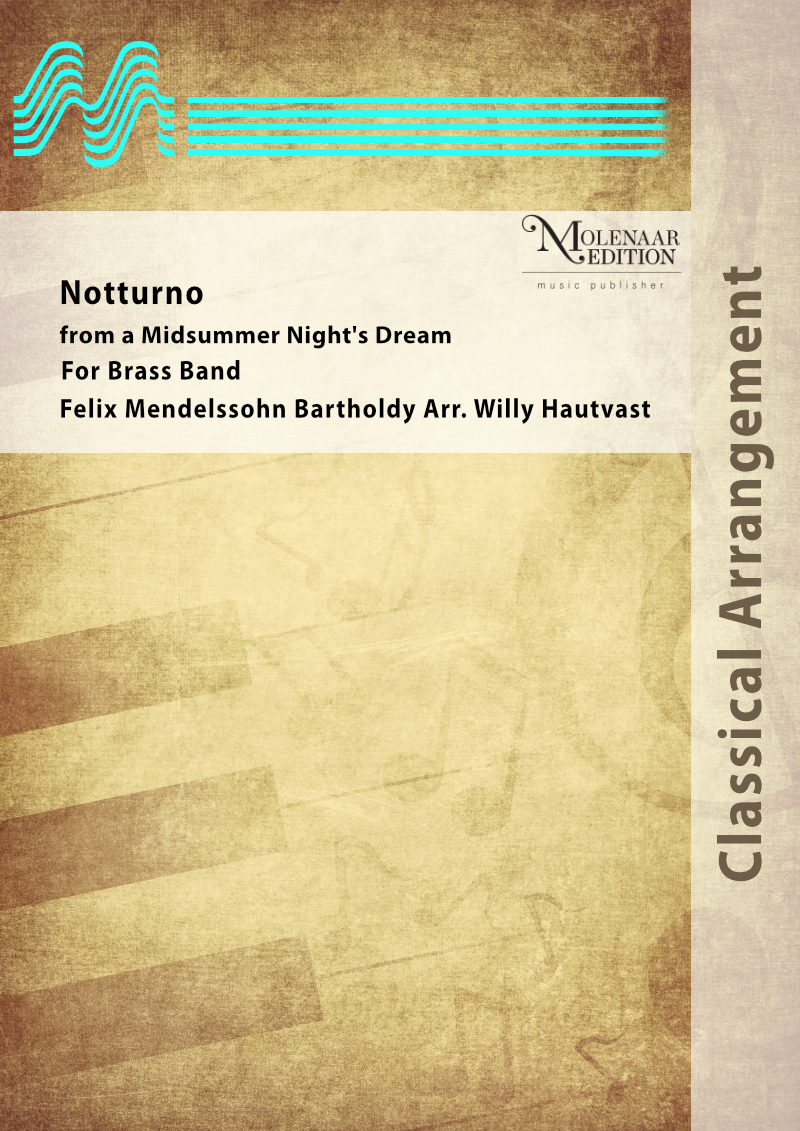Results
-
 £33.91
£33.91Amazing Grace (Eb Tenor Horn) - Kevin Ackford
Score & Parts One of the most popular Hymns of all time. This arrangement from Kevin has a touch of something different about it. A great crowd pleaser.
Estimated dispatch 5-7 working days
-
£68.00
Nearer, My God, To Thee (Bra) - Lowell Mason & James L. Stevens - Mike Kilmartin
"Nearer, My God, to Thee" is a 19th-century Christian hymn which retells a story from 'Genesis': "So he came to a certain place and stayed there all night, because the sun had set. And he took one of the stones of that place and put it at his head, and he lay down in that place to sleep. Then he dreamed, and behold, a ladder was set up on the earth, and its top reached to heaven; and there the angels of God were ascending and descending on it..."The hymn was also used by other composers like Carl Nielsen and Charles Ives, and was played by the string ensemble on the movie 'Titanic' when the vessel sank.This arrangement is based on the beautiful BYO choir version and Mike Kilmartin did a great job making a lovely band version of it.
Estimated dispatch 7-14 working days
-
 £31.00
£31.00Braithwaite For Brass - Brass Band - MM013 - Ian Thomas, Daryl Braithwaite, Wlater Becker & Ricky Lee Jones - Tim Middleton
COMPOSER: Ian Thomas, Daryl Braithwaite, Wlater Becker & Ricky Lee JonesARRANGER: Tim MiddletonAll new Brass Band arrangement featuring the best of Daryl Braithwaite including:"The Horses", "One Summer", and "As The Days Go By"A must for your summer concerts!
In Stock: Estimated dispatch 3-5 working days
-
 £30.00
£30.00Cool Jericho - Brass Band - Full Score & Parts - LM290
COMPOSER: African-American SpiritualARRANGER: Jonathan MeadCool Jericho gets down with it with a swing.A great big band style arrangement featuring a solo for cornet and all sections of the band have a superb time accompanying.Handclaps and no doubt plenty of foot-tapping throughout this one.A great addition for your audience and repertoire!Suitable Section 4 Upwards
In Stock: Estimated dispatch 3-5 working days
-
 £30.00
£30.00Livin' On A Prayer - Brass Band Sheet Music Full Score & Parts - LMAM019 - Richie Sambora, Jon Bon Jovi & Desmond Child - David Beal
COMPOSER: Richie Sambora, Jon Bon Jovi & Desmond ChildARRANGER: David Beal"Livin' on a Prayer" is a song by the American rock band Bon Jovi from their third studio album, Slippery When Wet. Written by Jon Bon Jovi, Richie Sambora and Desmond Child, the single, released in late 1986, performed strongly on both rock and pop radio and its music video was given heavy rotation at MTV, giving the band their first song to reach No. 1 on the Billboard Mainstream Rock chart and their second consecutive No. 1 Billboard Hot 100 hit.Regarded as the band's signature song, "Livin' on a Prayer" has topped fan-voted lists and re-charted around the world decades after its release. In 2013, the song was certified triple platinum for over 3 million digital downloads and has since sold over 13 million worldwide, making it one of the best selling singles of all time.Scored here for British Brass Band.Any purchases from this site cannot be made please click on the link above
In Stock: Estimated dispatch 3-5 working days
-
 £27.95
£27.95Radio Ga Ga - Brass Band - LM155 - Roger Taylor
COMPOSER: Roger TaylorARRANGER: David BealUK SALES ONLYPDF DOWNLOAD - NOT AVAILABLE DUE TO COPYRIGHTThe Queen classic from the 80's.A fantastic arrangement for your band to play this summer.Includes a vocal part for the budding Freddie Mercury in your band.Get your band singing in the middle section "All we hear is Radio Ga Ga, Radio Goo Goo........"Suitable for most bands.A classic must for your band library.The single was a worldwide success for the band, reaching number one in 19 countries, number two on the UK Singles Chart and the Australian Kent Music Report, and number 16 on the USBillboardHot 100.The band performed the song at every concert from 1984 to their last concert with lead singer Freddie Mercury in 1986, including their performance at Live Aid in 1985
In Stock: Estimated dispatch 3-5 working days
-
 £59.00
£59.00Notturno - Felix Mendelssohn Bartholdy/Willy Hautvast
This part from Mendelssohn's 'Midsummer Night's Dream' is a nice piece full of atmosphere allowing a wind band to excel. Above all, the French horn section comes to the fore. The work is well suited for different occasions both solemn and festive. This is one of the first arrangements for wind band written by Willy Hautvast.
Estimated dispatch 10-14 working days
-
 £35.00
£35.00Edward Gregson: Fanfare for a New Era (for Brass Band)
DescriptionComposer's NoteThe Fanfare has been designed to be partly antiphonal, with four separate brass 'choirs' initially playing their own music, and so some spatial separation is desirable. Soprano and solo cornets should be placed centrally, standing behind the rest of the band - or in some venues could even be placed off-stage in a side balcony, but still close to the band. If the Fanfare is played by a contesting size band, one of the solo cornets should play the 1st cornet part together with the usual player ie the number of players on the 1st, 2nd, and 3rd cornet parts should be equal. Otherwise the number of players in each of the two cornet 'choirs' is at the discretion of the conductor. The Tubular Bells accompanying the cornets 1-3 group should be placed close to that group. See inside back cover for suggested band formation.The style of playing should replicate that of symphonic brass, with a minimum of vibrato and with long notes being sustained without decaying.Programme NoteCommissioned in 2020 by Youth Brass 2000, Fanfare for a New Era was designed to be partly antiphonal - thus the separation of the band into four brass 'choirs', each with their own percussion accompaniment. First, soprano and solo cornets, rather like heraldic trumpeters, announce the main idea, majestic in character. Then horns, baritones, and euphoniums, with timpani, enter with stately figurations. Next, the heraldic trumpeters usher in trombones and tubas, to the accompaniment of tom-toms and snare drum, presenting a faster and rhythmic dance-like theme. Finally, the remaining cornets amplify the pealing of bells. All four elements then come together, surrounding the audience with a 'joyful noise' of festive brass and percussion.The original symphonic brass version of this fanfare can be purchased as part of a set of Three Fanfares HERE.For more information on Edward Gregson's music please visit the composer's website: www.edwardgregson.com
Estimated dispatch 7-14 working days
-
 £18.00
£18.00Es ist ein Ros Entsprungen
DescriptionEs ist ein Ros Entsprungen is sometimes sung to the English words "A Great and Mighty Wonder". This tune to the reformation era German carol first appeared in the Speyer Hymnal in Cologne in 1599. This harmonisation of the tune by Michael Praetorius in 1609, one of his earliest publications. Praetorius was, along with his slightly younger contemporary Heinrich Schutz, the foremost German composer of the day, and became famous for his choral music. Much of this was written for multiple groups positioned around the church and conducted by a central conductor, giving a multi-phonic effect similar to the Venetian music of Gabrieli. Today his most famous music is Terpsichore, a collection of over 300 secular dances.You can follow the preview video of the score below.PercussionPercussion required are timpani and clash cymbals only; if clash cymbals are not available this part should be omitted (rather than played on a suspended cymbal).Mutes2 x solo cornets, second cornets and all trombones will require cup mutes
Estimated dispatch 7-14 working days
-
 £12.00
£12.00Ave Maria
DescriptionJohann Sebastian Bach (1685 - 1750) was a German composer and musician of the Baroque period. Bach's compositions include the Brandenburg Concertos, the Goldberg Variations, the Mass in B minor, two Passions, and over three hundred cantatas of which approximately two hundred survive. His music is revered for its technical command, artistic beauty, and intellectual depth. Bach's abilities as an organist were highly respected during his lifetime, although he was not widely recognised as a great composer until a revival of interest in and performances of his music in the first half of the 19th century. He is now generally regarded as one of the greatest composers of all time.Charles-Francois Gounod (1818 - 1893) was a French composer, best known for his Grand Operas, most famously 'Faust', written in 1859 and his 'St Cecilia Mass' written in 1854. However possibly his most performed work is his arrangement of the latin text Ave Maria based on a work by Bach.You can listen to a computer realisation of the score while following the music below:
Estimated dispatch 7-14 working days




